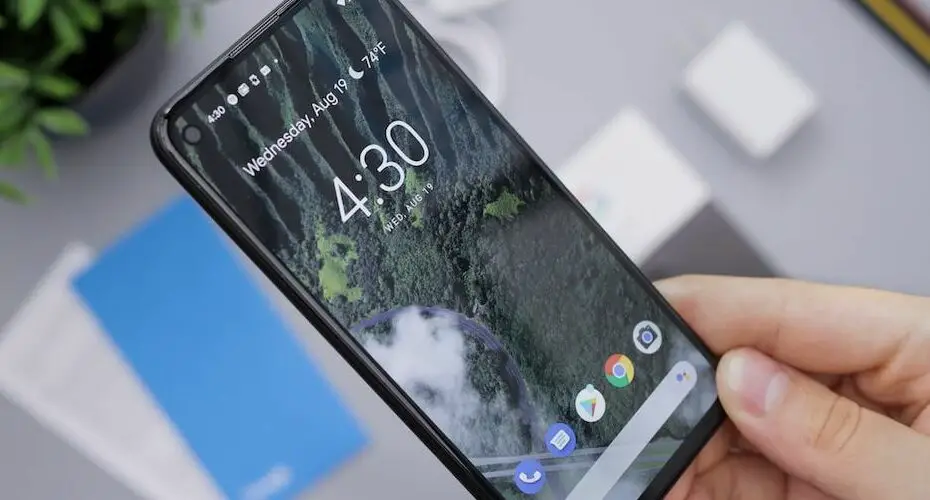Some people believe that using noise cancelling headphones can cause headaches. This is because the headphones work by blocking out sound, which can make it harder to hear things around you. Some people also think that the pressure that the headphones put on your head can cause headaches. However, there is not enough evidence to support this claim. Some people do experience headaches when using noise cancelling headphones, but it is usually temporary and can be solved by taking a break or removing the headphones.
Here’s what matters
Noise cancelling headphones are designed to reduce the amount of noise that is heard. This can be helpful for people who are trying to reduce the noise from their environment. However, some people may experience headaches from using noise cancelling headphones. This may be because the headphones are designed to reduce the noise from outside sources, but they may also be making other noises inside the head that are causing discomfort. Some people may also experience headaches when they are trying to use noise cancelling headphones for an extended period of time.

What Happens if You Wear Noise Cancelling Headphones All Day
Noise cancelling headphones reduce background noise by reducing the level of ambient sound. This can be helpful for people who are trying to concentrate in noisy environments, such as an airplane, or for people who want to block out background noise for personal privacy. However, noise cancelling headphones can also have negative effects on the user’s mental and physical health.
Noise cancelling headphones can cause sleep deprivation by reducing the amount of time that people sleep. Additionally, noise cancelling headphones can cause psychological stress by forcing the user to listen to loud noises over a prolonged period of time. In extreme cases, noise cancelling headphones can even cause hearing loss.
So, while noise cancelling headphones are generally safe to use, they can have negative effects on the user’s mental and physical health if they are used excessively.
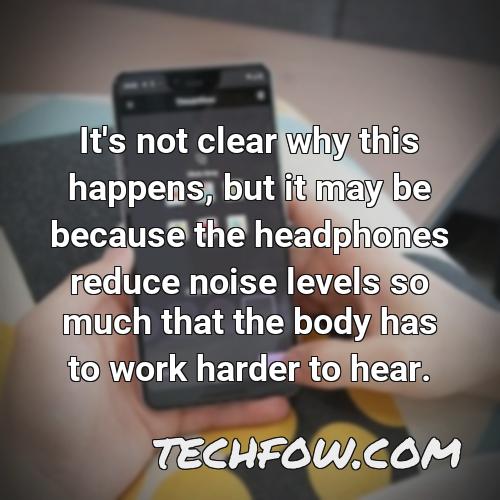
Can Wireless Headphones Cause Headache
Some people believe that using wireless headphones for extended periods of time can lead to headaches. This is likely because the headphones are constantly emitting electromagnetic fields (EMFs), which can irritate the eyes and the brain. Additionally, many people use wireless headphones to listen to music or podcasts for hours on end, which can cause pressure on the eardrums and inflammation of the middle ear. This can lead to pain and even an ear infection. If you experience any of these symptoms after using wireless headphones, you should consult a doctor to rule out any underlying issues.

Why Does Noise Cancelling Hurt My Head
Your brain is used to hearing low-frequency sounds, like those created by other people talking. When you put on headphones that cancel out all low-frequency noise, your brain gets used to not hearing those sounds. Over time, the lack of low-frequency sound will cause a pressure differential between your inner and outer ear, just like when you ascend in an airplane. This pressure differential can cause pain in your ears, and may even lead to hearing loss.
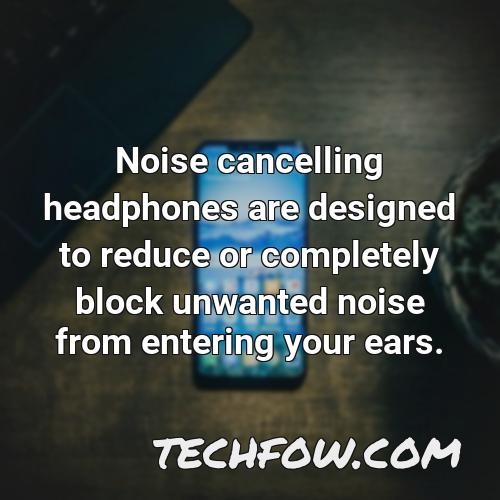
Do Noise Cancelling Headphones Have Side Effects
Some people who use noise-cancelling headphones report experiencing discomfort in their ears, which they describe as a pain, a feeling that their ears need to pop, dizziness, headaches, or nausea. It’s not clear why this happens, but it may be because the headphones reduce noise levels so much that the body has to work harder to hear. If you’re having trouble using headphones because of ear discomfort, it may be best to try a different pair.
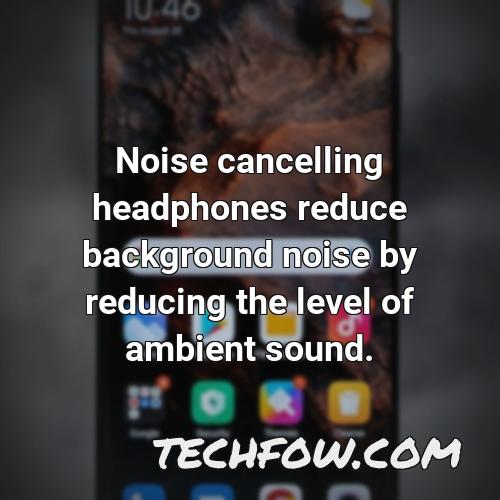
Should I Sleep With Noise Cancelling Headphones
Some people believe that sleeping with noise cancelling headphones is a good way to reduce background noise and improve sleep quality. Some people also believe that the headphones help to block out snoring. There are a few things to consider before making this decision.
First, it is important to consider your sleeping habits. If you tend to sleep through noise or noise cancelling headphones can cause you to be more restless, they may not be the best choice for you. Secondly, it is important to consider your budget. Noise cancelling headphones can be expensive, and some people may not be able to afford them. Thirdly, it is important to consider your individual needs. Some people may find that noise cancelling headphones help to block out noise, while others may not. Finally, it is important to consider your lifestyle. If you are frequently on the go, noise cancelling headphones may not be the best choice for you.
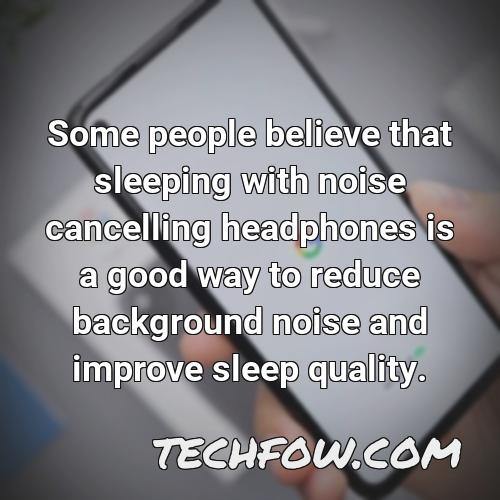
How Long Should You Wear Bluetooth Headphones
Bluetooth headphones are great for when you want to be able to listen to your music or audio without having to take your phone out of your pocket or purse. However, the WHO recommends that you only wear them for no more than one hour per day. This is because Bluetooth headphones can be harmful to your ears if you listen to them for too long. If you are worried that you might be listening to your headphones for too long, you can always take a break and listen to your music later.
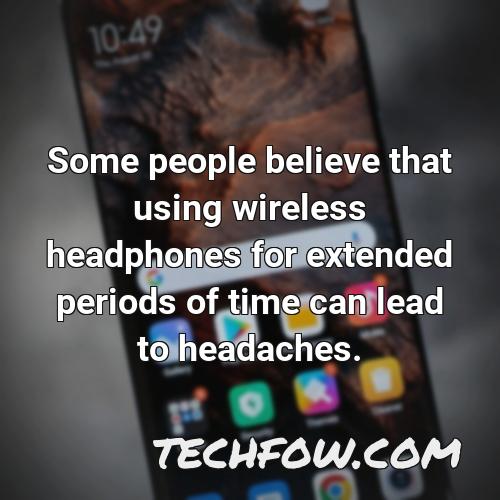
How Long Should You Listen to Headphones
Most people listen to music or other audio content on headphones for a short period of time, usually no more than an hour. However, if you listen to headphones for an extended period of time, you can start to experience noise-induced hearing loss.
Noise-induced hearing loss is caused by the continuous exposure to high levels of noise. This can happen when you listen to headphones at high volumes for an extended period of time, or when you listen to headphones for a short period of time and then turn up the volume.
The best way to prevent noise-induced hearing loss is to listen to headphones for a short period of time and limit the amount of time you spend with them in your ears. The 60%/60-minute rule recommends that you listen to music or play a movie or video game at no more than 60% of the maximum volume.

Can You Wear Noise Cancelling Headphones at Work
Noise cancelling headphones are designed to reduce or completely block unwanted noise from entering your ears. This is helpful if you are working in an noisy environment, but they are not designed to protect your ears from hearing damage. In fact, wearing noise cancelling headphones at work can actually increase your risk of hearing loss.
The reason why is because noise cancelling headphones work by vibrating your eardrums. This vibration can cause them to lose their sensitivity, which can lead to hearing loss over time. Additionally, noise cancelling headphones can actually magnify sound, which can also lead to hearing damage.
Therefore, it is important to use caution when wearing noise cancelling headphones at work. If you are worried about your hearing, it is recommended that you wear ear plugs or ear muffs instead.
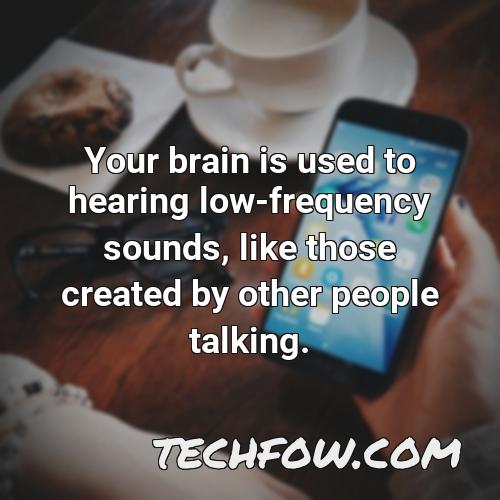
Why Do My Airpods Give Me a Headache
Putting the AirPods in your ears the wrong way can cause them to vibrate too close to your ear drum, which can cause headaches, earaches, and even ear infections. When you first get AirPods, make sure to try them out in different ways to see which one feels best for you. You can also store the AirPods in their case when you’re not using them to avoid putting them in your ears the wrong way.
The wrap up
Noise cancelling headphones can cause headaches for some people, but the evidence is not strong enough to support this claim. It is usually temporary and can be solved by taking a break or removing the headphones.

